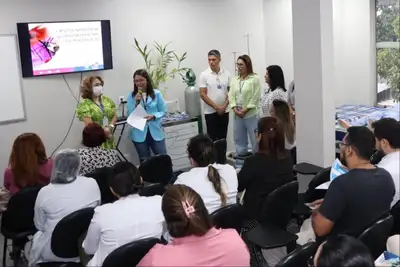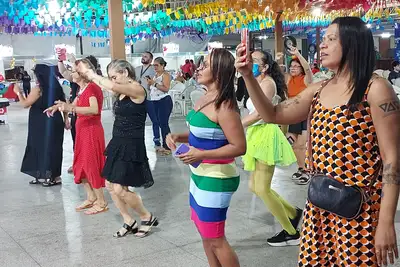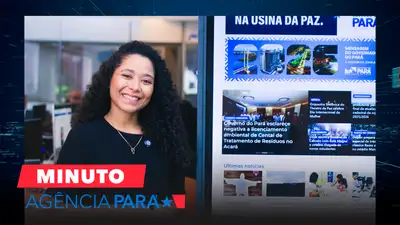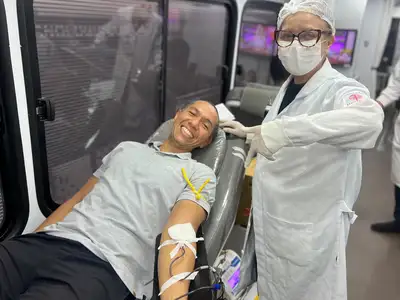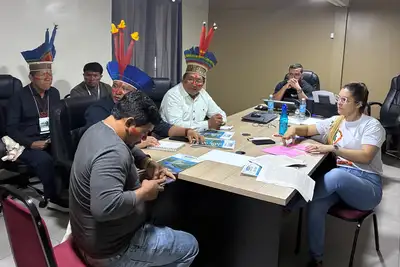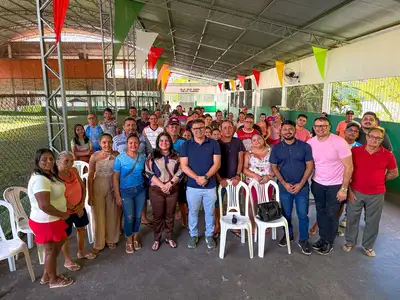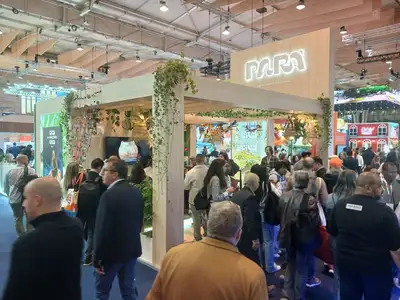At the Pará Pavilion, Banpará presents microcredit lines aimed at climate financing
The Bank integrated the program with the lecture "Microcredit: Social Impact and Climate and Inclusive Financing for the Bioeconomy," aiming to present microcredit lines focused on climate and inclusive financing, with an emphasis on bioeconomy and sustainable development.
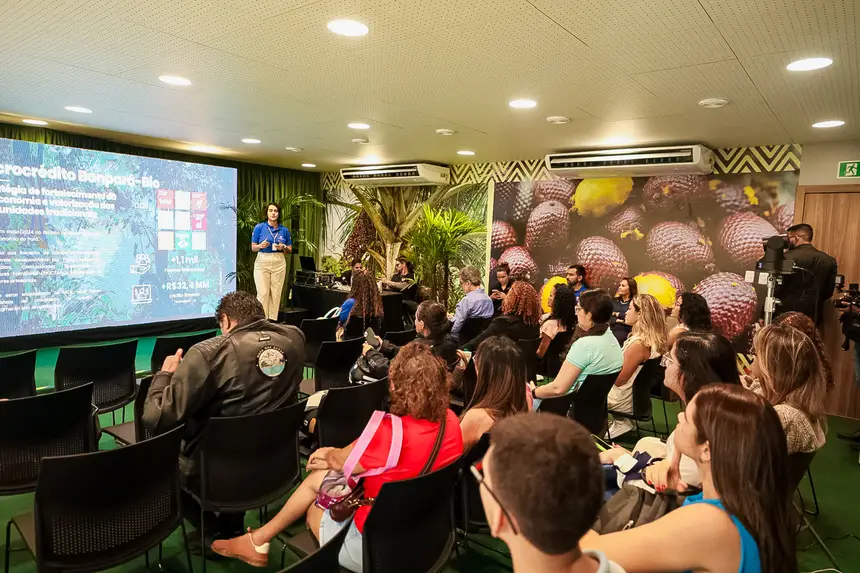
On the first day of programming for the 30th United Nations Conference on Climate Change (COP30), held in Belém, the Bank of the State of Pará (Banpará) integrated the program of the Pará Pavilion in the Green Zone with the lecture "Microcredit: Social Impact and Climate and Inclusive Financing for the Bioeconomy." The event aimed to present the bank's microcredit products and lines focused on climate and inclusive financing, with an emphasis on bioeconomy and sustainable development.
The initiative sought to strengthen Banpará's role as an agent of socioeconomic transformation, encouraging productive activities with low environmental impact and promoting financial inclusion for entrepreneurs, researchers, and producers from Pará.
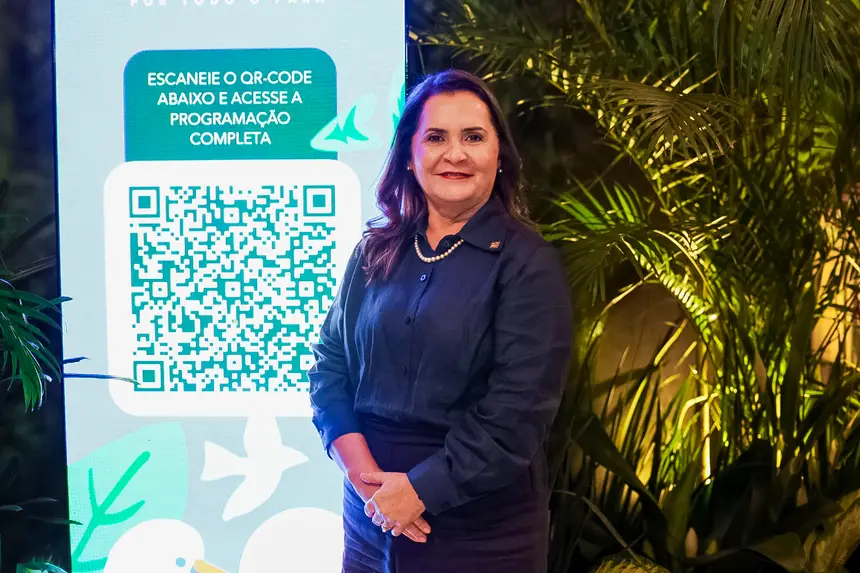
"Banpará, as the financial agent of the State government, integrates this important COP30 program by showing microcredit options and all the assistance we have available for micro and small entrepreneurs. We have several credit lines in the bank's portfolio, including highlighted lines such as Empodera, for the inclusion of our women in the financial system; lines for motorcycle taxi drivers and, mainly, lines aimed at environmental preservation and promoting the sustainability of the planet," declared the president of Banpará, Ruth Pimentel Mello.
Diverse lines – Banpará offers various financing lines and programs focused on sustainability and climate actions, including credit for sustainable vehicles, incentives for clean energy, and support programs for rural producers with an environmental focus.
Among the modalities presented were financing lines for sustainable vehicles, which guarantee specific credit for the acquisition of electric and hybrid vehicles; the Banpará Bio program, which has a credit line aimed at rural producers registered in the Sustainable Territories Program, with the purpose of stimulating productivity in the field while keeping the forest standing; in addition to Sustainable Rural Credit, which operates federal programs such as PRONAF Bioeconomy and PRONAF Forest, aimed at financing renewable energy technologies, conservation practices, forestry, agroforestry systems, and the recovery of degraded areas.
With these initiatives, the bank guarantees credit options for financing sustainable businesses, with differentiated interest rates and payment terms adapted to the local reality.
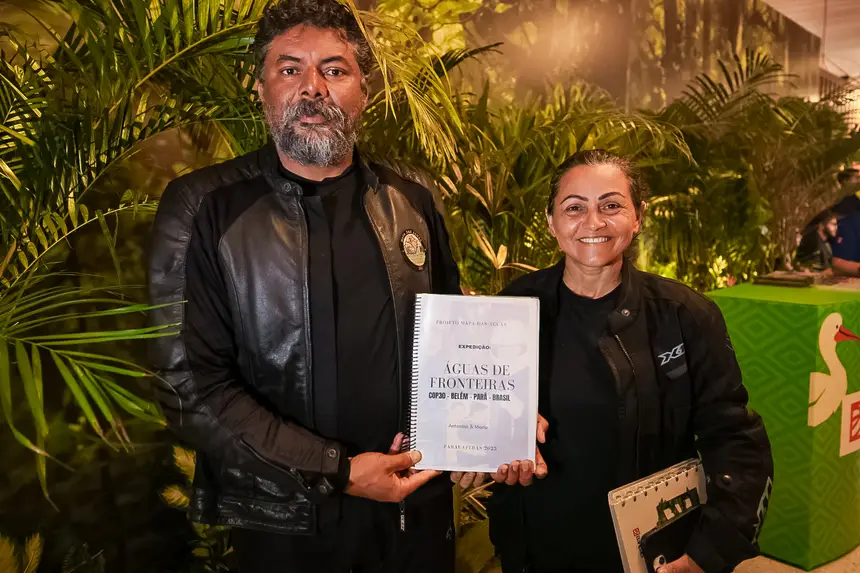
Researchers Antonino and Maria Brito, who came from the municipality of Parauapebas in southeastern Pará, participated in the COP30 program presenting the results of extensive research dedicated to analyzing water quality in border areas of Brazil. They also took advantage of the activities promoted by the State government at the Pará Pavilion to clarify doubts about the credit lines offered by Banpará.
"For us, this program is very important. A lecture like this clarifies doubts we have and brings us closer to relevant discussions and information. We intend to take advantage of the services offered by the bank to continue our research project," Antonino informed.
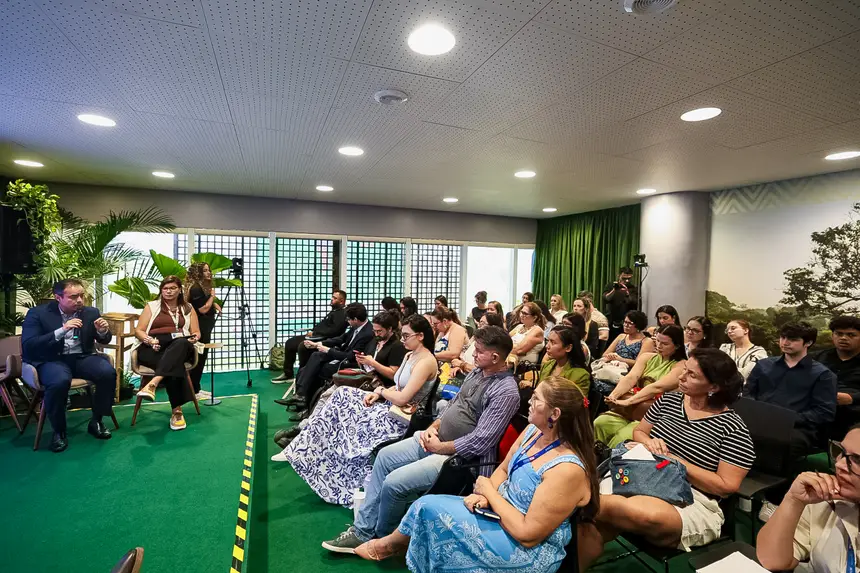
Service – With this action, Banpará reaffirms its commitment to climate goals and the development of a green and inclusive economy that values the potential of the Amazon and its peoples.
More information can be obtained at Banpará branches present in the 144 municipalities of Pará.



